China-built modern power plant puts BiH town on the map
The municipal flag of Stanari, a small town in northern Bosnia and Herzegovina (BiH), has an unusual symbol on it: a chimney, representing the Stanari Thermal Power Plant (TPP) built by China.
It was the first China-built power plant in Europe, whose opening led to the creation of jobs and a pouring of investment into the country's infrastructure. The Stanari TPP is a source of pride in the local community, thanks to its use of green energy over polluting coal.
The power plant, built by China Dongfang Electric Corporation (DEC), first went into operation in August 2016. It has generated on-grid power of more than 7 billion kilowatt-hours since then, which has mainly been sold to European markets, including Croatia and Germany.
"It's one of the things that students learn in school," said Zorica Glisic-Samac, a teacher at the central school of Stanari. "When you say Stanari, first you think of the power plant. It's a big deal."
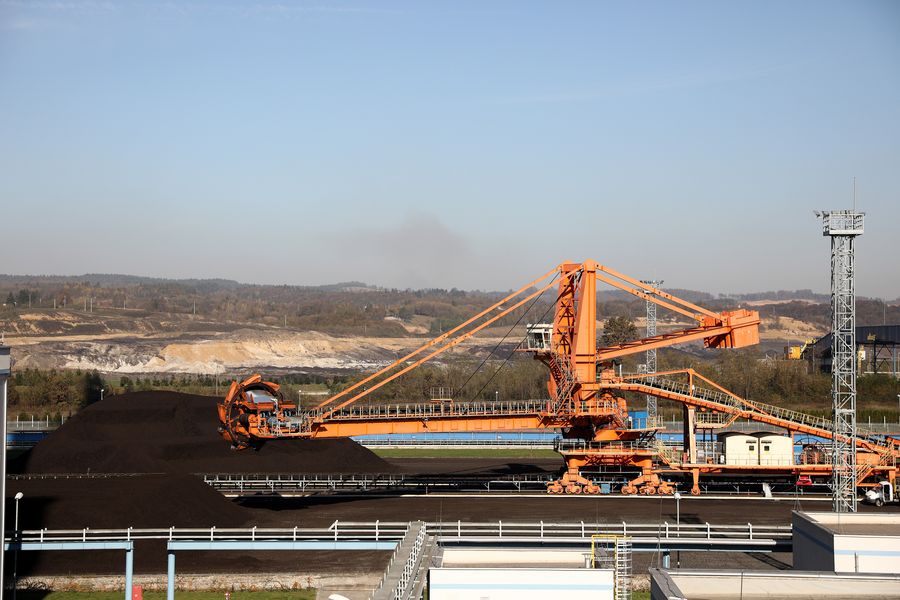
Photo taken on Oct. 23, 2019 shows the coal used for the Stanari Thermal Power Plant in Stanari, northern Bosnia and Herzegovina (BiH). (Xinhua/Nedim Grabovica)
GREEN CHANGE
Stanari, 150 km north of the country's capital Sarajevo, is rich in lignite, a low-quality type of coal. Lignite emits a lot of pollutants if burned in a conventional way, while its low value makes long-distance transport of it economically unviable.
Frustrated by strict European environmental regulations, the widely available coal reserves and mining industry in the Balkan region were trapped in technological and financial difficulties, while local development was stemmed by power deficits.
A solution given by DEC, a Sichuan-based company specializing in power-generation equipment, brought BiH hope.
In 2016, Stanari adopted an energy-saving and emission-reducing technology DEC had independently developed.
The production here is efficient, said Aleksandar Milic, technical director of the plant, adding that in controlling emissions of sulfur dioxide, nitrogen oxide and dust, it meets or even exceeds European Union standards.
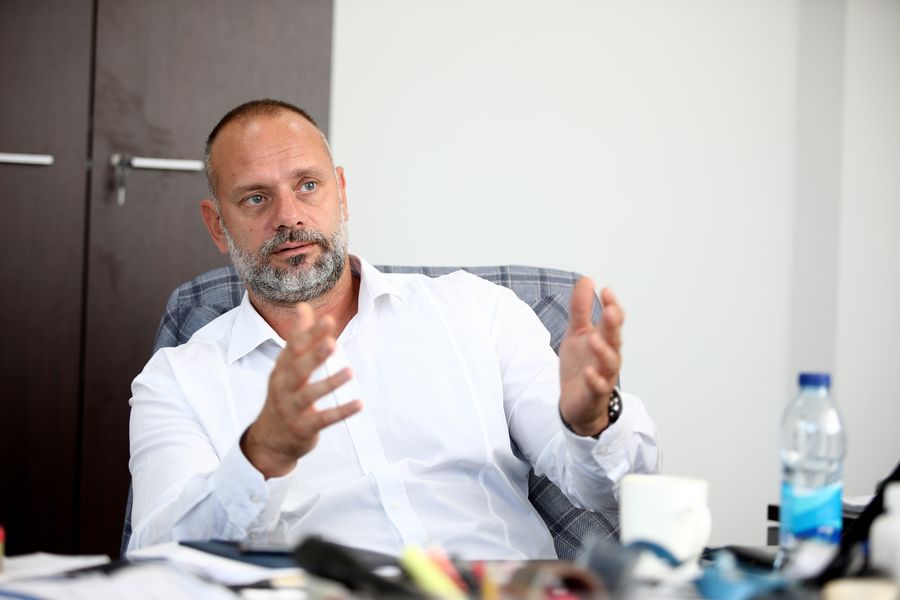
Aleksandar Milic, technical director of Stanari Thermal Power Plant, is interviewed by Xinhua in Stanari, northern Bosnia and Herzegovina (BiH), Oct. 23, 2019. (Xinhua/Nedim Grabovica)
In fact, the technology is so efficient that local residents didn't at first realize the local plant was generating power, since no smoke or loud noises are produced by it.
In the control room at the heart of the plant, tens of thousands of signals are constantly monitored, including real-time emission data sent to an external environment watchdog.
"The Chinese helped us build one of the best power plants in Europe," said Milic.
The power plant has put Stanari on the map. The operation here has attracted peer companies from more than 30 countries to visit, according to Hu Yang, DEC's operation and maintenance manager for the Stanari project.
For the European market, where regulations are among the strictest in the world, "we are showcasing ... Chinese companies' capabilities in project design, construction, operation and maintenance at an arena of the highest level," Hu said, referring to the fact that as many as 200 Chinese suppliers contributed to the project.
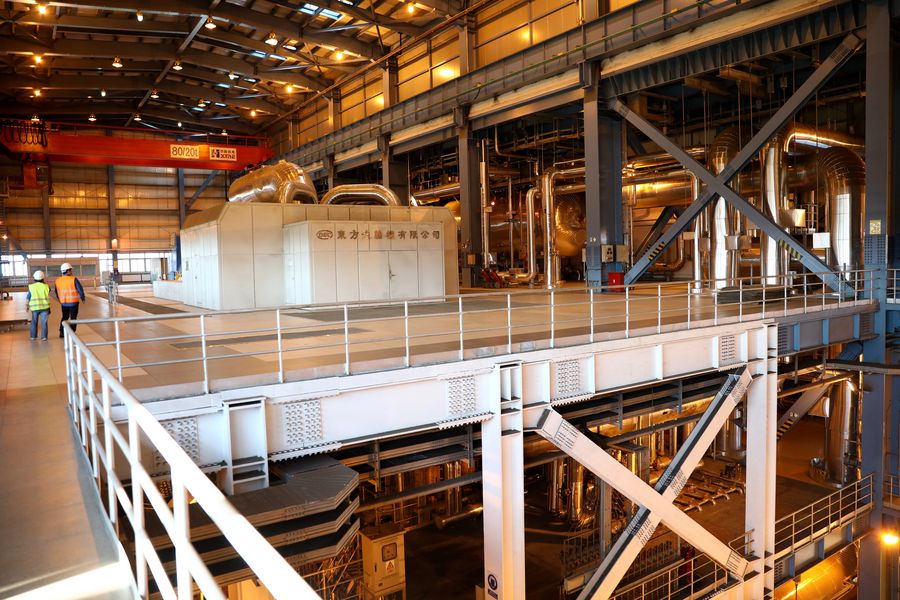
Photo taken on Oct. 23, 2019 shows the Stanari Thermal Power Plant in Stanari, northern Bosnia and Herzegovina (BiH). (Xinhua/Nedim Grabovica)
PROSPERITY PATH
Stanari used to have a population of just 2,000. Young people would leave for better jobs in nearby cities or even other countries.
A great many changes have taken place since the power plant broke ground in 2013. Stanari now has a population of about 5,000, of which some 850 work for the power plant and the adjacent coal mine.
Boro Krsic, an electrician, said he takes pride in his job at the plant because it offers a better salary and working conditions than his previous one. Thanks to his job, he is now able to renovate his house and travel more. His 23-year-old son also works at the company.
According to Dusan Panic, mayor of Stanari municipality, over the past four years, 20 million convertible marks (11.3 million U.S. dollars) have been spent on the municipality's infrastructure alone -- and all of the investment came from the power plant.
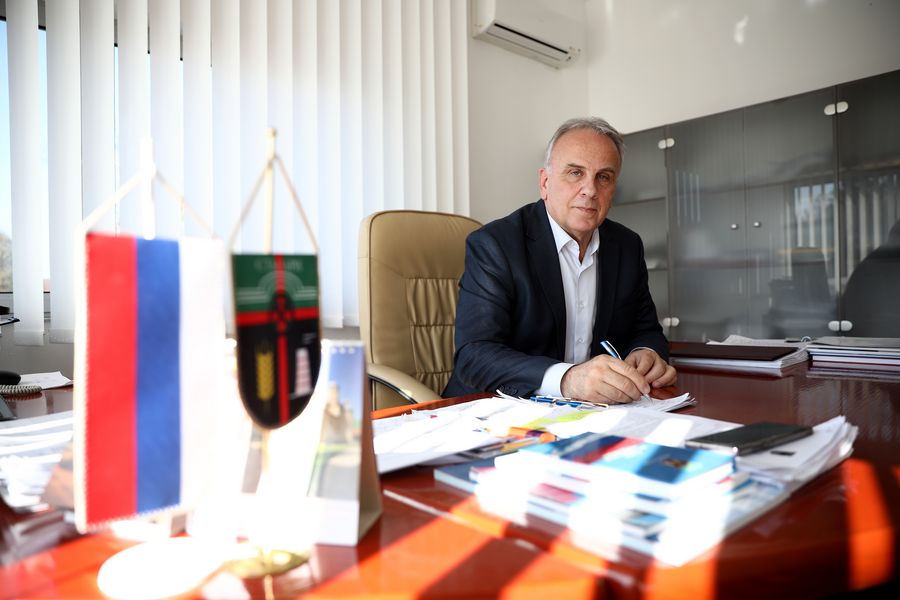
Dusan Panic, mayor of Stanari municipality, is interviewed by Xinhua in Stanari, northern Bosnia and Herzegovina (BiH), Oct. 24, 2019. (Xinhua/Nedim Grabovica)
"It has benefited everyone. Without the power plant, Stanari would still be a village," Panic said, adding that the average monthly salary in Stanari city -- around 719 dollars -- is now way higher than the national average of 528 dollars.
Glisic-Samac, a school teacher, said she was impressed by how the power plant is helping the local community, especially its school.
She said that a kindergarten and a conference room are soon to be added to the current school building. Students are also looking forward to a field trip sponsored by the power plant, she added.
"I think young people here have a really good opportunity for a good life," Glisic-Samac said.
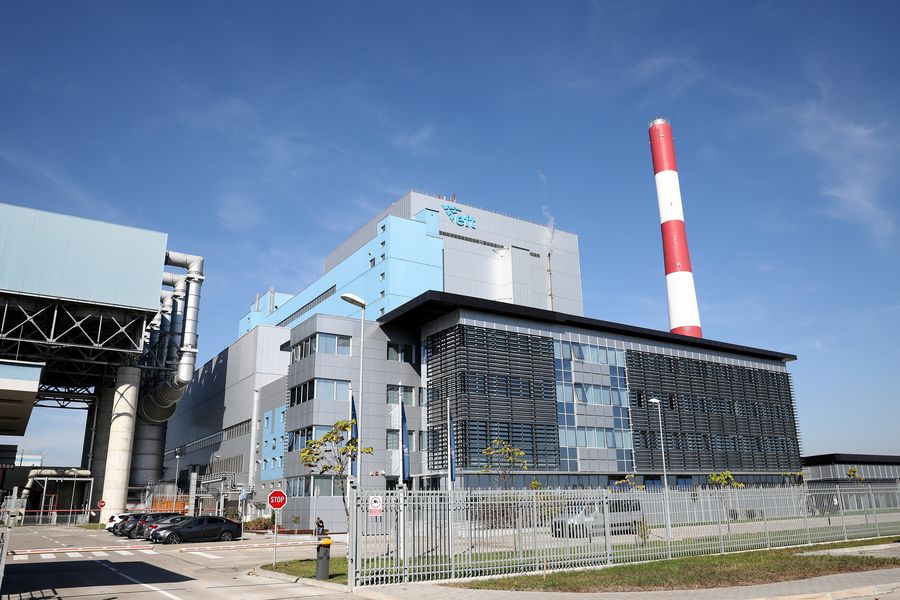
Photo taken on Oct. 23, 2019 shows the Stanari Thermal Power Plant in Stanari, northern Bosnia and Herzegovina (BiH). (Xinhua/Nedim Grabovica)
SIGNATURE PROJECTS
The Stanari TPP is considered a signature project within the framework of the cooperation between China and Central and Eastern European Countries as well as the Belt and Road Initiative.
Milorad Dodik, the Serb member of the tripartite presidency of BiH, said in an interview with Xinhua in September that he believed cooperation with China is in the interests of Balkan countries.
Chinese enterprises have provided good opportunities for the development of infrastructure, energy and communication in Balkan countries, Dodik said.
Not far from Stanari, in the city of Doboj, a hospital will be built by China Sinopharm International Corporation and equipped with modern facilities.
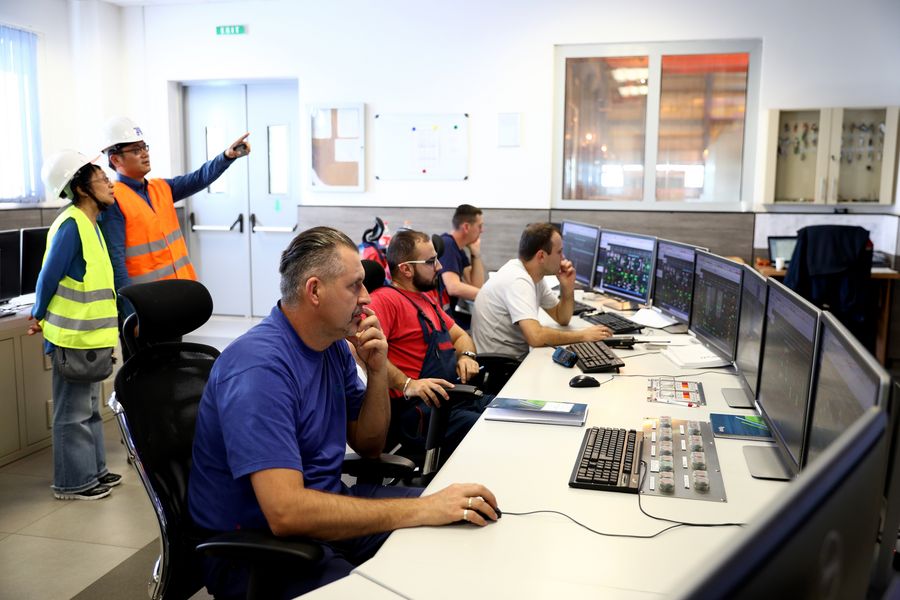
Staff members work at a control center of the Stanari Thermal Power Plant in Stanari, northern Bosnia and Herzegovina (BiH), Oct. 23, 2019. (Xinhua/Nedim Grabovica)
In the neighboring Serbia, the steel plant in Smederevo, invested in by China's HBIS group, is "on the track to become the most competitive steel mill in Europe," according to the Central European Financial Observer, a Poland-based economic news platform.
In Montenegro, the Mozura Wind Park with its 23 smart turbines, jointly built by China and Malta, was inaugurated last week.
Apart from infrastructure projects, there are also "unimaginable opportunities for (the) development of cooperation in the field of tourism," according to Faruk Boric, a political commentator from BiH, who urged his compatriots to drop the mentality of geopolitical power struggles to embrace mutual cooperation.
Hu Yang said that respecting local practices, complying with local laws and regulations, and recruiting local talents jointly led to his company's successful running of the Stanari TPP project.


